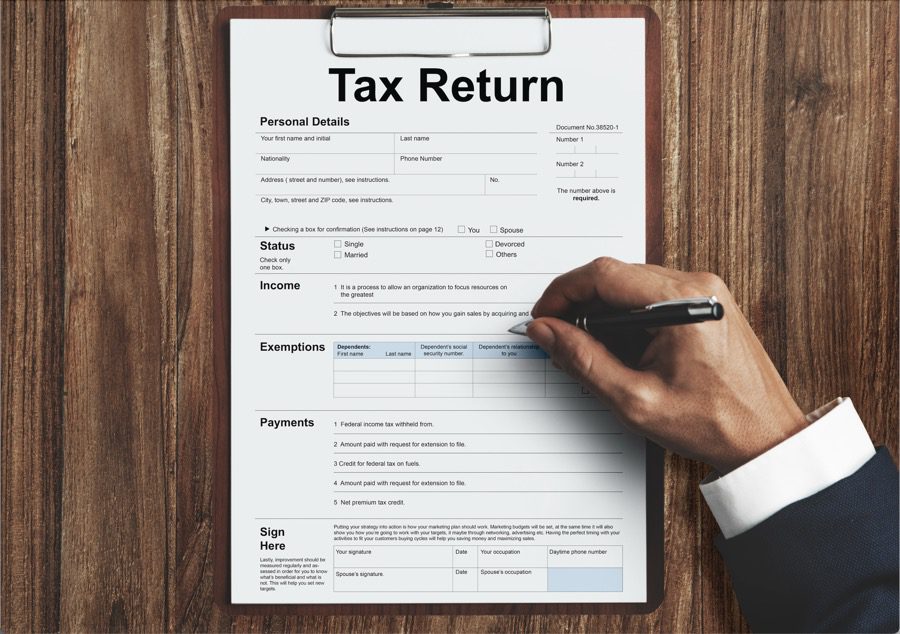The passage of the “One Big Beautiful Bill Act” (commonly called the Big Beautiful Bill or OBBBA) on July 4, 2025, marks a pivotal moment for real estate investors seeking turnkey properties, those evaluating investment properties for sale, and homeowners across the broader real estate economy. While the legislation itself has been politically debated, this article focuses solely on its financial and tax implications for real estate investors and the opportunities it creates.
Expanded SALT Deduction Benefits for High-Tax State Investors and Memphis Buyers
A cornerstone of the OBBBA is the temporary quadrupling of the SALT (state and local tax) deduction cap, raised from $10,000 to $40,000 beginning in 2025 and lasting through 2029, before reverting in 2030. The cap phases down by income, with the full benefit applying to individuals earning up to $500,000 (or $600,000 for married couples).
This expansion is especially relevant for investors who live in high-tax states but are purchasing investment properties for sale in Memphis or diversifying into other low-tax markets. Even if their investment properties are located in Tennessee or Mississippi, their personal state income taxes and primary residence property taxes are paid in their state of residence. These are the taxes that qualify for the expanded SALT deduction at the federal level.
In practice, that means an investor can benefit from Memphis’s low property taxes and strong cash flow, while simultaneously receiving substantial federal tax relief on the taxes they pay back home.
For many, itemizing will once again exceed the standard deduction, reversing a long-standing disadvantage faced by taxpayers in high-tax states. For investors based in these areas, this dual benefit strengthens the case for diversifying into stable, lower-tax markets like Memphis and targeting turnkey Memphis properties.
Permanent Tax Relief and Structural Wins for Real Estate Investors
The OBBBA permanently extends the Qualified Business Income (QBI) deduction under Section 199A, which allows eligible pass-through businesses—including many rental real estate activities—to deduct up to 20 percent of their qualified business income. For real estate investors, this effectively lowers the taxable income generated from rental properties held in LLCs or partnerships. By making this deduction permanent and easing prior income-based limits, the bill provides long-term certainty and improves after-tax returns for both small and large-scale investors.
The legislation also restores a more favorable calculation for the business interest deduction (Section 163(j)), reverting to EBITDA-based limits (instead of the more restrictive EBIT-based limitation) for tax years beginning after December 31, 2024. This supports investment activity by easing interest expense deductibility, an important consideration for leveraged real estate acquisitions.
The OBBBA further retains 100 percent bonus depreciation under Section 168(k), enabling investors to fully expense certain property costs—including improvements separated through cost segregation—accelerating write-offs and improving near-term cash flow.
Together, these provisions provide real estate investors with stronger cash flow and more predictable tax planning, especially those building portfolios of turnkey Memphis properties or evaluating new investment properties for sale in growing markets.
Affordable Housing, Generational Wealth, and Broader Provisions
- Beyond tax relief, the OBBBA includes strategic provisions aimed at affordability, housing supply, and generational wealth transfer.
- The bill permits permanent expansion of the Low-Income Housing Tax Credit (LIHTC) and the New Markets Tax Credit, with enhanced allocations projected to generate up to 1.22 million affordable rental homes between 2026 and 2035. Opportunity Zones are also strengthened with revised incentives to attract investment into underserved communities, which can complement the steady performance of Memphis investment properties in more established neighborhoods.
- The Child Tax Credit has been permanently raised to $2,200 per child, with inflation indexing, offering broader support for families and potential housing affordability impacts.
- The law sets a permanent estate and gift tax exemption at $15 million, indexed for inflation, safeguarding wealth preservation and easing generational property transfers.
- Other notable improvements include full expensing of domestic research and development, bonus depreciation, fixes to interest expense deduction limits, and immediate expensing for eligible industrial structures. The bill does not alter carried interest rules, maintaining long-standing tax treatment for real estate managers and private equity operators.
- The bill also expands the 0% long-term capital gains bracket, raising income thresholds so more middle-income investors can sell appreciated assets without paying federal capital gains tax. While high-income rates remain unchanged, this creates additional flexibility for many investors building diversified portfolios that include Memphis turnkey properties.
Action Steps for Real Estate Investors After the New Tax Law
- Re-Evaluate Deals with SALT Relief in Mind
If investing in high-tax states, recalculate after-tax yields under the $40,000 cap. Projects previously marginal under prior SALT limitations may now be viable, especially for multi-state buyers or syndicators. - Leverage the Permanent QBI Deduction
Use the permanent 20 percent deduction for qualified business income when structuring or expanding rental portfolios, particularly if purchasing investment properties in Memphis through an LLC or partnership. This provides long-term tax savings and greater certainty for future planning. - Optimize Capital Structure with Interest and Depreciation Benefits
Bonus depreciation and interest deduction relief improve cash flow and financing capacity. Real estate investors should incorporate these into pro forma modeling, loan assumptions, and capital structuring plans. - Explore Affordable Housing and LIHTC Opportunities
With billions boosted into LIHTC and Opportunity Zone enhancements, consider development or acquisition in these segments. Affordable housing remains a resilient, government-sponsored investment pathway with solid long-term returns. - Estate Planning and Succession Strategy
Given the elevated estate and gift tax exemption, now is an opportune time to reassess generational transfer strategies, potentially expanding holdings or planning transitions in ways previously constrained by lower thresholds. - Strategic Use of Trust Structures and SALT Optimization
High-income individuals may explore non-grantor trust arrangements to multiply SALT deduction eligibility. While powerful, such structures require careful planning and professional oversight due to IRS scrutiny and administrative complexity. - Stay Informed on Sunset Timelines
Key provisions are temporary. The SALT cap reverts in 2030, and bonus depreciation or other features may shift. Monitoring legislative updates or potential extensions is essential for long-term planning.
Looking for a real estate tax specialist to help you take advantage of new homeowner benefits? Talk to one of our trusted professionals.
Conclusion
The One Big Beautiful Bill Act represents a landmark moment for real estate investors, delivering both broad tax relief and targeted provisions to support affordability and investment. Regardless of the politics in Washington, the key takeaway is financial: higher SALT caps, business income advantages, accelerated depreciation, affordable housing incentives, and estate planning benefits. For investors looking to maximize returns, now is the time to reassess strategy and capture these advantages in Memphis turnkey investment properties and other growing markets.
References
- National Association of REALTORS®. “Senate Passes Tax Bill with Major Wins for Real Estate.” 2025.
- https://www.nar.realtor/magazine/real-estate-news/senate-passes-tax-bill-with-major-wins-for-real-estate
- Goodwin Law. “One Big Beautiful Bill Act – Tax Highlights Related to Real Estate.” July 2025.
- https://www.goodwinlaw.com/en/insights/publications/2025/07/alerts-practices-tax-one-big-beautiful-bill-act-tax-highlights-related
- Bipartisan Policy Center. “Explainer: SALT Deduction Changes in the One Big Beautiful Bill Act.” 2025.
- https://bipartisanpolicy.org/explainer/salt-deduction-changes-in-the-one-big-beautiful-bill-act
- Wall Street Journal. “Republican Tax Bill Raises SALT Deduction Cap.” July 2025.
- https://www.wsj.com/personal-finance/taxes/republican-tax-bill-salt-deduction-cap-f69b1580
- Kiplinger. “New SALT Cap Deduction Savings with Nongrantor Trusts.” 2025.
- https://www.kiplinger.com/taxes/tax-planning/new-salt-cap-deduction-tax-savings-with-nongrantor-trusts
- Akron Cleveland Realtors. “Senate Passes Tax Bill with Major Wins for Real Estate.” July 2025.
- https://akronclevelandrealtors.com/news/from-nar-senate-passes-tax-bill-with-major-wins-for-real-estate
- SmartAsset. “SALT Deduction Explained.” 2025.
- https://smartasset.com/taxes/trumps-plan-to-eliminate-the-state-and-local-tax-deduction-explained
Please Share This Article
If you enjoyed this article, please share it. We appreciate your support and referrals.
Talk To The Author
Brian Conlon is the Director of Business Development at Meridian Pacific Properties. With years of experience in real estate investing and turnkey property management, Brian specializes in helping investors optimize cash flow, plan for long-term property performance, and navigate the complexities of real estate investing.
Schedule a consultation with Brian to learn more about investing in SFR investment properties.







